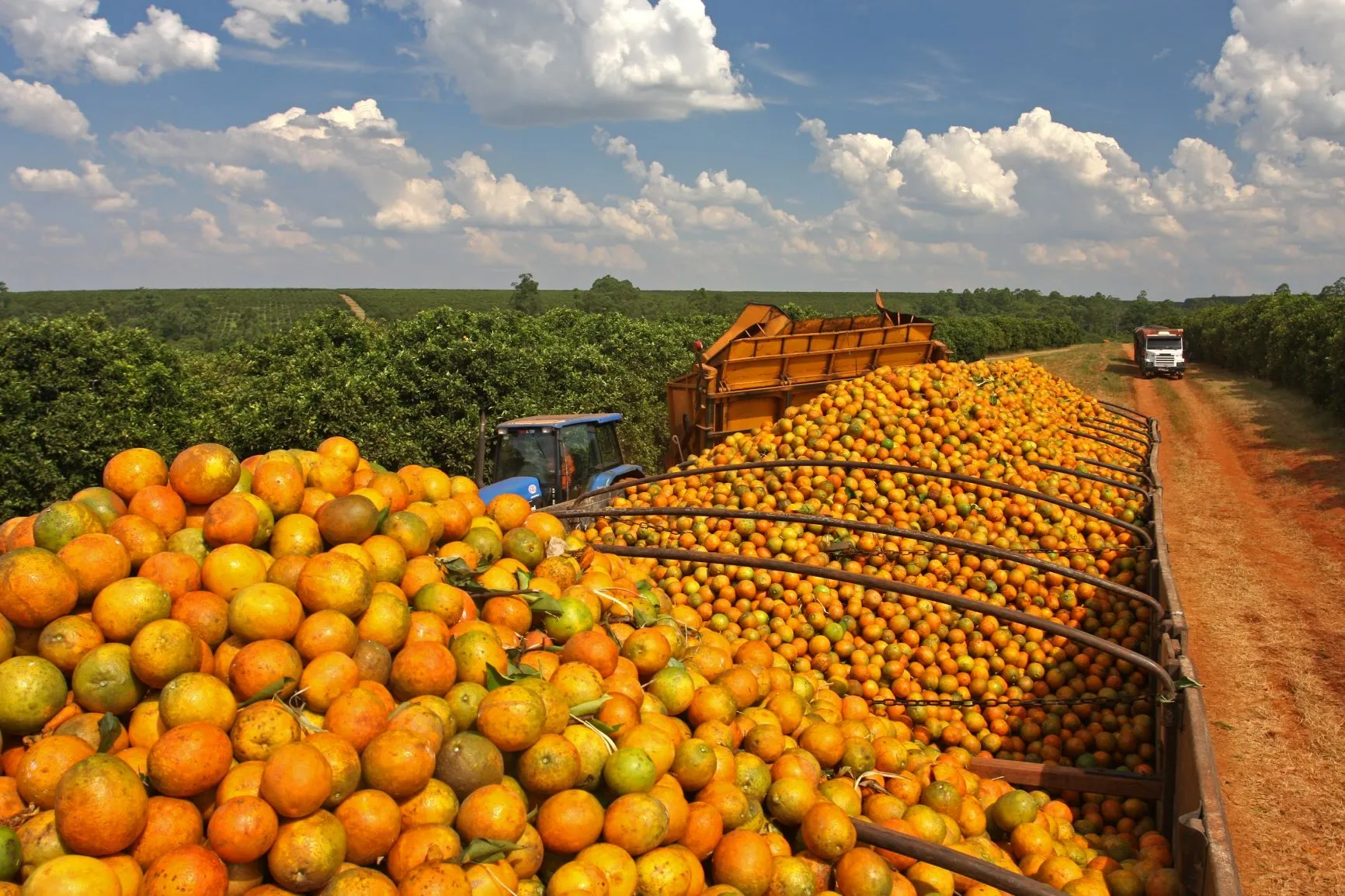In the first half of the 2023/24 season, Brazil sold 543.8 thousand metric tons of frozen concentrated orange juice (FCOJ).
This brought in $1.3 billion from July to December last year. The data provided by CitrusBR from the Secretariat of Foreign Trade (Secex) involves Citrosuco, Cutrale, and Louis Dreyfus Company.
These firms are leaders in the global market. Despite a 7.3% drop in quantity from the previous year, the earnings went up by 20.7%. The reason? Prices on the global market rose.
Brazil saw a decrease in orange supply due to bad weather. This is the fourth year the supply has been low in São Paulo and Minas Gerais.
These areas are the largest producers globally. The Citrus Defense Fund (Fundecitrus) expects a harvest of 307.2 million boxes. This is 7 million less than last year.

“Florida had its smallest harvest ever, and Brazil’s production is low,” says Ibiapaba Netto from CitrusBR. He adds, “This makes it hard to find enough oranges.”
Europe buys the most Brazilian orange juice. In six months, it bought 298.8 thousand tons, including ready-to-drink juice.
Though sales dropped by 10.5%, revenue rose by 16.2% to $754.5 million. The U.S. bought 170.2 thousand tons, a small decrease, but paid 23.7% more, bringing in $432 million.
Japan also bought less, 5% less at 13.3 thousand tons, but paid 30.1% more, totaling $35 million.
With low global stocks due to Brazil’s smaller harvest, expect fewer sales but higher prices.
Background
Brazil’s orange juice market is crucial worldwide. Its performance affects global prices and supply.
The country’s weather plays a big part in this. When Brazil faces climate issues, the whole world feels it in the orange juice market.
This year’s drop in production has pushed prices up internationally.
Countries like the United States and Spain also produce orange juice. However, Brazil’s role is the biggest.
When Brazil’s supply drops, others can’t fully make up the difference. This leads to higher prices everywhere.
Brazil’s situation shows how interconnected global markets are. A problem in one country can affect many others.
For Brazil, this means both challenges and opportunities. It faces the task of managing its resources well. At the same time, it can influence the global orange juice market significantly.
The world watches Brazil’s orange juice industry closely. It is a key player in the global economy.
As Brazil goes, so goes the orange juice market. This highlights the importance of sustainable agriculture and climate action. Both are vital for stable markets and global food security.

